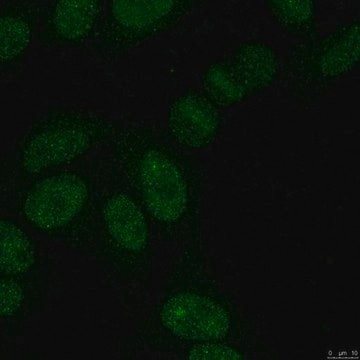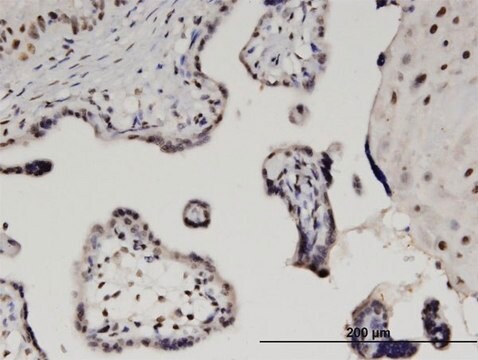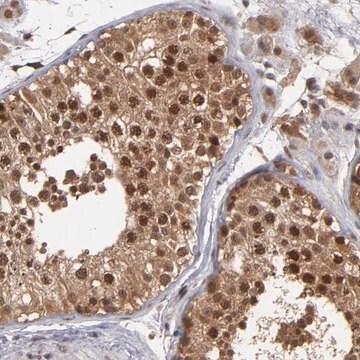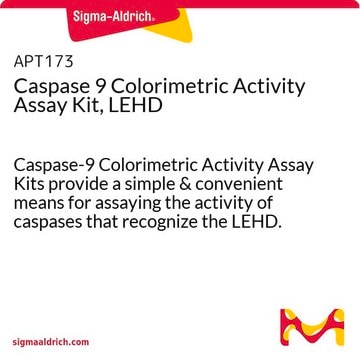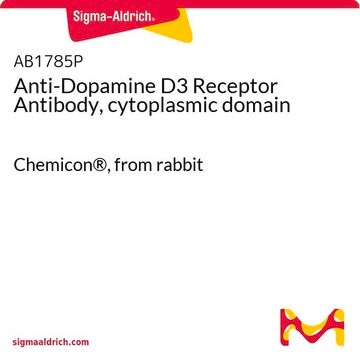SAB4200190
Anti-Sumo-2/3 antibody, Rat monoclonal
clone 3H12, purified from hybridoma cell culture
Synonym(s):
Anti-HSMT3, Anti-MGC117191, Anti-SMT3 homolog 2, Anti-SMT3 suppressor of mif two 3 homolog 2, Anti-SMT3B, Anti-SMT3H2, Anti-sentrin 2, Anti-small ubiquitin-like modifier 2, Anti-small ubiquitin-related modifier 2, Anti-ubiquitin-like protein SMT3B, Monoclonal Anti-Sumo-2/3, SUMO-2/3, SUMO2/3
About This Item
Recommended Products
conjugate
unconjugated
antibody form
purified from hybridoma cell culture
antibody product type
primary antibodies
clone
3H12, monoclonal
form
buffered aqueous solution
mol wt
~11 kDa
species reactivity
mouse, rat, human
concentration
~1.0 mg/mL
technique(s)
immunocytochemistry: suitable
western blot: 2-4 μg/mL using HeLa cell nuclear extract
UniProt accession no.
shipped in
dry ice
storage temp.
−20°C
target post-translational modification
unmodified
Gene Information
human ... SUMO3(6612)
mouse ... Sumo3(20610)
rat ... Sumo3(499417)
General description
Immunogen
Application
Biochem/physiol Actions
Physical form
Disclaimer
Not finding the right product?
Try our Product Selector Tool.
Storage Class Code
10 - Combustible liquids
Flash Point(F)
Not applicable
Flash Point(C)
Not applicable
Certificates of Analysis (COA)
Search for Certificates of Analysis (COA) by entering the products Lot/Batch Number. Lot and Batch Numbers can be found on a product’s label following the words ‘Lot’ or ‘Batch’.
Already Own This Product?
Find documentation for the products that you have recently purchased in the Document Library.
Our team of scientists has experience in all areas of research including Life Science, Material Science, Chemical Synthesis, Chromatography, Analytical and many others.
Contact Technical Service
